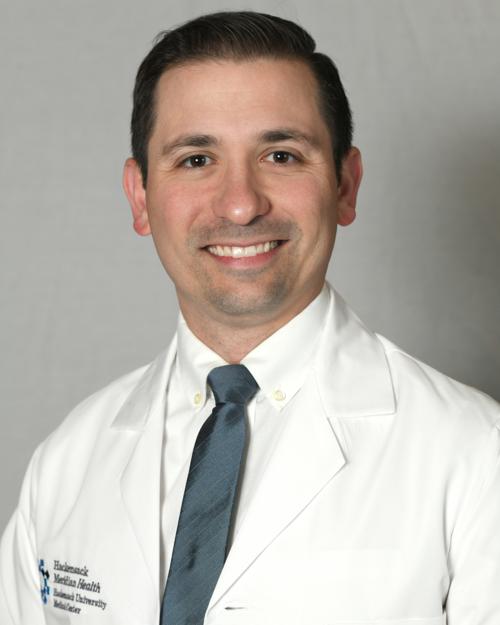Can Young People Get Hernias?

June 11, 2025
When you think of hernias, who do you think of? Many people believe that only seniors get hernias. This just isn’t true. Did you know hernias can occur at any age? Even infants can get hernias.
George Mazpule, M.D., FACS, a robotic general surgeon atHackensack University Medical Center, explains common signs of hernias and when to seek help.
What Is a Hernia?
“A hernia is when organs or tissue poke through a weak spot or hole in your abdominal wall,” says Dr. Mazpule. Sometimes, people are born with a weakness or small hole; others develop them after abdominal surgery.
Common Causes of Hernias in Young People
You may be wondering how young people develop hernias. A young person may get a hernia due to:
- Congenital conditions include when a person is born with weaknesses in the abdominal wall. They are more likely to have hernias as they grow up.
- Physical activity and sports, especially activities involving repetitive twisting and turning like ice hockey, soccer and tennis. The muscles in the lower belly get stretched or torn, causing pain and weakness.
- Rapid weight changes, including sudden weight gain or loss. Weight gain can put stress on the abdominal wall, while weight loss might lead to muscle mass loss. Both can cause hernias to form.
What Are the Signs of a Hernia?
If you have a hernia, the first sign you’ll likely notice is a bulge, called a protrusion. This is when an organ or tissue pushes through a weak spot in the muscle. It can create a noticeable lump under the skin. It might get bigger when you stand up, cough or lift something heavy.
You will often see it popping out in your abdominal or groin area. Protrusions can be painful, but sometimes they are completely painless. Lack of pain doesn’t mean you should ignore it. Dr. Mazpule says, “If you see a bulge, go see a hernia specialist.” Waiting can lead to serious problems, even if it’s not bothering you.
Can You Prevent a Hernia?
Unfortunately, you can’t prevent a hernia. Many believe heavy lifting will cause a hernia, but this isn’t true. Heavy lifting only causes you to see the hernia sooner.
Hernia Treatment Options
Dr. Mazpule says the only way to treat a hernia is with surgery. There are three surgical options for hernia treatment:
- Open or traditional surgery: When a surgeon makes a single large cut near the hernia, pushes the tissue back into place, and braces the area with stitches or mesh
- Laparoscopic surgery: A minimally invasive approach using small cuts and a camera (laparoscope) to guide the surgeon
- Robotic-assisted surgery: A similar procedure to laparoscopic surgery, but the surgeon uses a robotic system
The type of surgery will depend on the size and location of your hernia as well as your overall health. The length of a hernia procedure depends on how big the hernia is. Small hernias can usually be repaired with outpatient surgery. Larger hernias may require an inpatient stay.
Robot-assisted surgery for hernias
A surgeon can perform robotic-assisted surgery using advanced technology and precision tools. Rest assured, the procedure is entirely controlled by the surgeon, not artificial intelligence.
Dr. Mazpule says robotic-assisted surgery is a great option to treat hernias because:
- It allows for complex surgery to take place through small incisions.
- Multiple hernias can be fixed with one incision.
- It has a faster recovery.
- The scars are smaller.
- There is typically less pain.
- Risk of infection or other complications is lower.
- Risk of a future hernia is lower.
When open surgery is needed
Open surgery may be necessary if you:
- Have a very large hernia
- Have a lot of scar tissue from previous procedures
- Can’t tolerate general anesthesia
Don’t Ignore the Signs of a Hernia
Have you noticed signs of a hernia? We all have busy lives, and it’s easy to put off seeing a doctor, especially if you are young and healthy. It’s also easy to ignore a bulge, particularly a painless one.
But if you notice a protrusion, it is important to see a doctor. Hernias can happen to anyone, and as Dr. Mazpule warns, “Hernias don’t go away; they only get bigger with time.” If you wait too long, they can develop into a more severe problem.
Next Steps & Resources:
- Meet our source: George Mazpule, M.D.
- Make an appointment witha surgeon near you or call 800-822-8905.
- Learn more about surgical services at Hackensack Meridian Health.
The material provided through HealthU is intended to be used as general information only and should not replace the advice of your physician. Always consult your physician for individual care.







